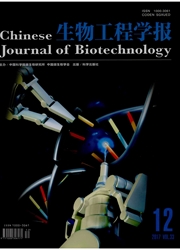

 中文摘要:
中文摘要:
微生物燃料电池(Microbial fuel cell,MFC)利用微生物整体作为催化剂催化底物将化学能直接转化为电能,是一种极具应用前景的生物电化学技术。微生物在阳极氧化还原有机物产生电子并传递给阳极,电子通过外电路传递至阴极后将电子释放给阴极中的氧化剂,从而产生电流。当有毒物质进入MFC,微生物活性降低,电子传递量变少,电流降低,而电流的产生与微生物活性呈线性关系,据此可检测样品的毒性。本文主要介绍了微生物燃料电池在毒性物质抗生素、重金属离子、有机污染物、酸等方面的研究,并分析了微生物燃料电池存在的问题及未来研究方向,以期不久的将来微生物燃料电池能付之使用。
 英文摘要:
英文摘要:
Microbial fuel cells (MFCs) is a highly promising bioelectrochemical technology and uses microorganisms as catalyst to convert chemical energy directly to electrical energy. Microorganisms in the anodic chamber of MFC oxidize the substrate and generate electrons. The electrons are absorbed by the anode and transported through an external circuit to the cathode for corresponding reduction. The flow of electrons is measured as current. This current is a linear measure of the activity of microorganisms. If a toxic event occurs, microbial activity will change, most likely decrease. Hence, fewer electrons are transported and current decreases as well. In this way, a microbial fuel cell-based biosensor provides a direct measure to detect toxicity for samples. This paper introduces the detection of antibiotics, heavy metals, organic pollutants and acid in MFCs. The existing problems and future application of MFCs are also analyzed.
 同期刊论文项目
同期刊论文项目
 同项目期刊论文
同项目期刊论文
 期刊信息
期刊信息
